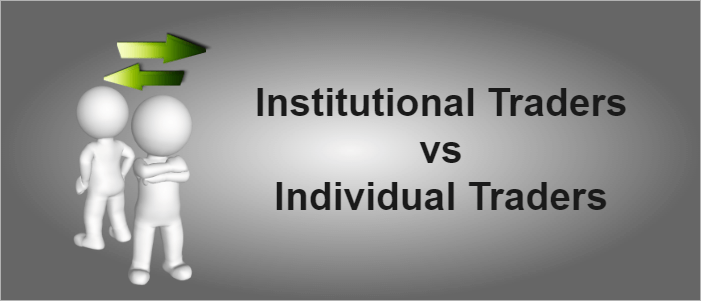What Is a Trader?What exactly is a Trader?A financial trader purchases and sells financial items through financial institutions. In finance, a financial instrument is any contract between two parties (typically between an individual and financial institution) that may be created, traded, or modified by following certain terms and conditions. For instance, shares or stocks are financial instruments that represent ownership of a piece of a firm. Other examples include bonds, futures contracts, checks, derivatives, options, and bills of exchange. Traders work for financial institutions as either professional (institutional) or corporate workers. They trade financial items on stock exchanges, derivatives markets, and commodities exchanges. 
Understanding the Trading WorldA trader usually works for a financial organisation and is compensated with a salary and a bonus for trading with the company's money and credit. A trader might also work for an individual, using their earned money and credit to produce the maximum possible profit. Generally, there are two categories of traders, namely long-term traders and short-term traders. With a long-term trading approach, there is a moderate risk as well as profit. In contrast, short-term trading involves higher risks and rewards. Despite this, short-term trading has two major drawbacks: frequent commission fees and paying the bid/offer spread. Because traders usually employ short-term trading techniques to maximise profits, they might amass huge commission costs. This cost, however, has been decreased by the expanding number of competitive discount brokerages. Conversely, computerised trading platforms have reduced spreads in the foreign currency market. In the United States, short-term capital gains are also susceptible to unfavourable tax treatment. What are the many categories of trading?In this modern world, many traders can trade for themselves, using their own money and retaining 100% of the profits. There are several sorts of traders that employ various trading tactics. These are some notable trading approaches/ categories:
Trading is now available to both financial professionals and regular people searching for an extra source of income and an intellectual challenge. Nonetheless, financial understanding is critical to the success of a trader. Various websites offer free instructional DVDs, trading seminars, educational manuals, and analytical papers to help new and aspiring investors better understand the markets. Several trading platforms also provide demo versions, allowing users to test their trading skills before investing real money. Institutional Traders vs Individual Traders
Many big financial organisations have trading rooms where dealers discuss, purchase and sell items on the organisation's behalf. Every trader is limited in the size of a position he may hold, the maximum maturity of the position, and the amount of mark-to-market loss he can incur before closing out a position. The company assumes internal risk with an intention to earn profits on investments via trader; the trader is paid a salary and is eligible for bonuses as well. On the other hand, most people who trade on their own account do so from home or a small office, using a discount broker and computerised trading platforms. They have limited credit and cash, but they keep all earnings without sharing any portion or a salary with any third party or a trader. What exactly are Discount Brokers?Discount brokers provide a medium to interact with financial market commodities and charge little or no commission on each trade made by users. Discount brokerage businesses have reduced transaction costs but offer little or no financial assistance. Individuals cannot trade on a stock or commodity exchange on their own. Thus hiring a discount broker is a low-cost way to acquire market access. All those discount brokers provide margin accounts, which allow traders to borrow money from the broker to buy stock. This raises the magnitude of their holdings while also raising their potential loss. Foreign currency trading platforms connect buyers and sellers in the spot, futures, and options markets. They vastly increase the pricing information available to individual traders, resulting in tighter spreads and reduced fees. Tax Regulations on TradingThe disadvantage of trading, especially short-term trading, is that they are taxed at the trader's ordinary income tax rate. If the underlying instrument is kept for at least one year, the profit earned is considered the short-term capital gains and short-term capital gains are taxed at a rate of up to 20%. However, for long-term trading, the profits are entirely tax-free in most cases. Existing legislation provides no formal definition of merchants for tax purposes. Trader Tax Status (TTS) is present; however, an individual's decision depends on the facts and circumstances supplied. When establishing a trader's tax status, the IRS considers the number of trades conducted, the frequency and total amount of trades, as well as profits. Traders can utilise workarounds to reduce their tax payments on short-term transactions. For example, they can deduct expenditures incurred in their trade environments, like freelancers or small company owners. Dealers could value their total trades for a particular year and claim losses as deductions if they selected Section 475(f). What are the many sorts of markets that exist today?Depending on education and experience, a person may need to be made aware of the investments or trading vehicles available with a mouse click. Even if they avoid abstract and illiquid marketplaces, traders can locate trades in a variety of markets. Some notable markets include the following:
While there are many marketplaces, they are all now easily accessible from home by anybody with an internet connection. Each market has its own set of perks and disadvantages. As a result, many traders may choose to trade only in one market because it suits one element of their life or because they need an understanding of various markets to invest in all. This might imply that traders must take advantage of the proper market, given their trading approach. Alternative MarketsFor Day TradersThe primary appeal of trading in the foreign currency markets is the low initial investment. Accounts are frequently available for as cheap as $100. Individuals can trade worldwide currencies, indices, and commodities daily. The trader uses the forex market to exchange one piece of money for another, maybe in an account denominated in another currency. Trading seems enticing, with no entry barriers, no fees, significant leverage, and free trading tools like charts and research. There are, however, possibilities for trading forex or CFDs as well, which can cover virtually any other market. Through exchange-traded funds, dealers can participate in currency movements when trading on the stock exchange. Even though starting a day trading stock/ETF account requires a more significant investment, ETFs can be either leveraged or not leveraged. When utilising an ETF, a trader is not required to pay the spread. They might instead sit on the bid, offer liquidity, and get ECN rebates. This is helpful in currency pairings with low fluctuation or when a scalping approach is desired. ETFs also allow traders to participate in other markets, such as the movement of oil, gold, silver, or stock indexes; traders can leave the CFD market and begin trading ETFs, giving them access to a broader choice of commodities. Using ETFs, CFDs, and the FX market may be prudent, depending on one's trading strategy. Various products can be used to hedge or profit from price differences, such as when a currency pair changes without changing the related ETF. Day trading, or purchasing and selling securities on the same day, is standard in the foreign exchange and stock markets. For Long-Term InvestorsCommodities frequently draw long-term investors, but because they are inexperienced with futures markets, they have yet to participate directly in the fluctuations of things such as gold, silver, or platinum. Furthermore, individuals are unlikely to be exposed to multiple currencies. Once traders have thought about specific trading options, they may apply that while trading. However, the duration of the instrument should be related to their trading style. There are many instances when a diverse market understanding can open new avenues, even for conservative investors who only make a few trades. After learning about the other markets, one can conclude that the forex market may be utilised to get currency exposure. ETFs can also get currency exposure, participate in commodity price fluctuations, and gain exposure to various global economies. Long-term traders might benefit from CFDs since the bid/ask spread narrows with time. They also offer some of the benefits of options and have no expiration date. Large blue chip stocks, for example, are frequently offered through CFDs. As this stock is not owned, it is feasible to participate in price fluctuations while investing less money. Nonetheless, the CFD does not grant voting rights or any other benefits to users connected with ownership of a portion of that firm. Apart from this, one must consider taxes and how the instruments fit into larger goals, like retirement, when trading any asset. Because each instrument is treated slightly differently, it is best to obtain professional help. Which markets should one invest in?The world today is experiencing an expansion in the sorts of trading instruments that may be employed as technology progresses and trading innovation emerges. Even seemingly unconnected markets now compete for each other's market share. Instead of buying gold directly or through a futures contract, a person can invest in an exchange-traded fund (ETF) and profit from the volatility of gold prices. Given the possibilities of similar scenarios involving currencies, commodities, stocks, and other assets, traders can fine-tune their trading and tailor it to their circumstances. Trading style, financial resources, region, and trading time may impact which markets are most suited to the trader. As some of these markets may be new, one must first deeply examine the specific category and understand how they could employ additional needs to better their trading. Such possibilities must be considered since they allow for fine-tuning, resulting in superior long-term performance. The Bottom LineIt is critical to be aware that alternatives exist. This is not to argue that every option will benefit someone, but selecting a combination of markets or fine-tuning how we engage with those markets can influence outcomes. Sometimes individuals also need to switch markets since their success may be improved if they continue to learn and diversify their investments. On the other hand, incorporating other markets may give benefits such as slight changes in costs, capital outlays, and risks with enormous long-term ramifications. Learning about all the available marketplaces can provide additional options and either more earnings or lower expenses. |
 For Videos Join Our Youtube Channel: Join Now
For Videos Join Our Youtube Channel: Join Now
Feedback
- Send your Feedback to [email protected]
Help Others, Please Share









